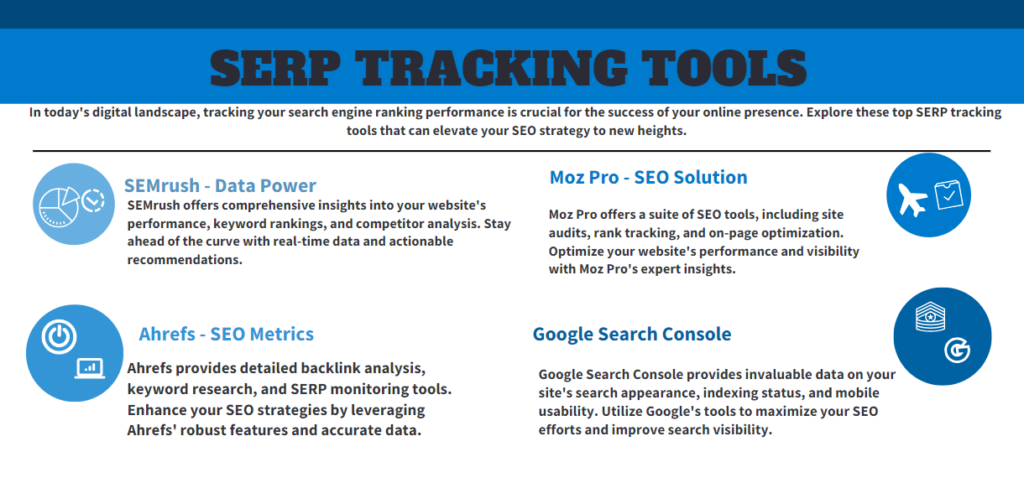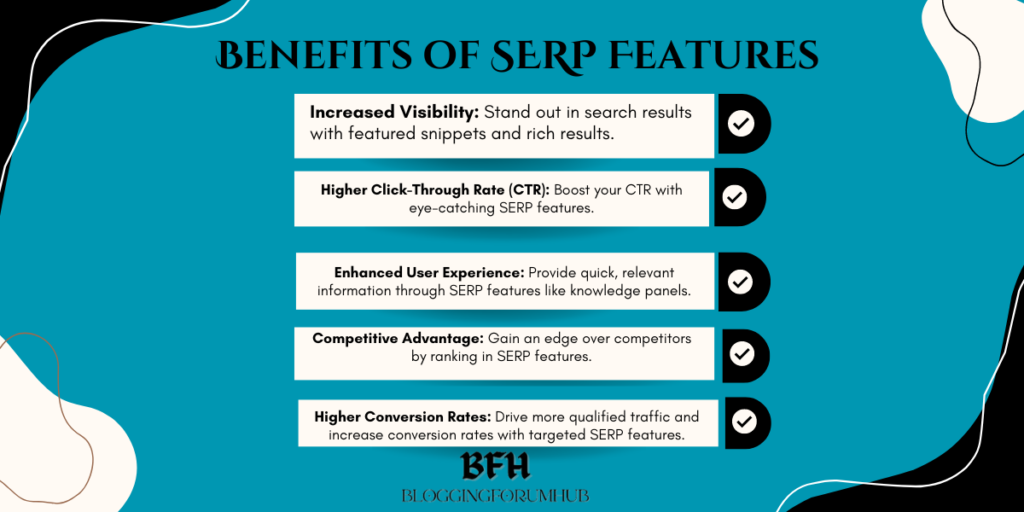Search Engine Results Pages (SERPs) are important in boosting visits and sales in the dynamic field of digital marketing. Which have been enhanced with elements that go beyond normal blue links, present a chance to attract users and increase website exposure. Gaining knowledge of and making use of these qualities will greatly increase your SEO plan and raise your ranks.
Table of Contents
ToggleKnowing SERPs and Their Features
What Does SERP Stand For?
SERP Stand For search engine results pages, the page that engines display in response to a query is known as a SERP. It includes multiple SERP elements, targeted promotions, and organic results. Together with each other, all of these factors define how users interact with search results and how data is presented to users by search engines.
Outline of Google SERP Features
Google SERP features are particular elements aimed at providing viewers with easy access to useful data. Among the most popular Google SERP features are:
- Featured Snippets: are short pieces gathered from websites that directly address a user’s question.
- Knowledge Panels: information windows with important facts concerning a particular topic that show up on the right side of the search results.
- Local Packs: Collections of local company offerings that appear on a map and are very helpful to searches based on location.
- Carousels of photos and movies that have been organized in rows according to the search term.
- People Also Ask (PAA): A list of inquiries that are linked to the main inquiry and can be expanded to reveal an easily understood response.
- Rich Snippets: Improved search results with more data such as event details, reviews, and ratings.

Tracking and Monitoring SERP Features
Tracking SERPs: Tools and Importance
Monitoring SERP elements is essential to understanding how well your website is doing and where you might want to make changes. Rankings, click-through rates (CTR), and visibility are significant variables in SERP tracking. The following tools have been recommended for tracking Google SERPs:
- SEMrush: performs extensive keyword research and SERP tracking.
- Ahrefs: offers a thorough examination of SERP elements and search engine performance.
- Moz: offers powerful tools for keyword research and SERP tracking.
- SERPWatcher: a straightforward instrument for monitoring changes to SERP rankings.
Effective setup and use of these technologies includes trend analysis, modifications to strategies based on data insights, and routine performance monitoring of your website.

Using SERP Features for SEO [Featured Snippet Optimization]
On the results pages of top real estate, featured snippets deliver immediate responses to user inquiries. To identify snippet optimization:
- Provide quick responses to questions: Make sure the solutions to the most common queries in the content you provide are concise and clear.
- Make use of organized formatting: for an easily understood presentation of information, use tables, numbered lists, and bullet points.
- Add necessary keywords: Obviously, in your responses, incorporate the target keywords and their variants.
If the information you provide is aimed at answering a query like “How to boost SEO rankings,” make sure to include a clear, detailed response.
Making Use of Schema Markup and Structured Data
Your chances of showing up in SERP characteristics are enhanced by using structured data and schema markup, which help search engines analyze the content of your webpages. Putting schema markup into practice involves the following:
- Including essential schemas: For structuring the content you create, use schemas such as Article, Recipe, Event, and Product.
- Utilizing instruments for verification: Use Google’s Structured Data Analysis Tool to ensure that there are no errors in your markup.
By performing this, you may improve rich snippets, which offer more details to your listings by displaying factors like reviews, pricing, and event dates.
Focusing on Knowledge Panels and Local Packs
It’s important for business enterprises with physical offices to be set up in local packs and knowledge panels. To optimize for these qualities, follow these steps:
- Enhance your Google My Business (GMB) profile by ensuring that it has relevant business information, images, and feedback from customers, and that it is full and current.
- Utilize local keywords: Put location-specific keywords in your metadata and content.
- Promote client feedback: Having a positive GMB profile can boost your ranking in local searches.
Tracking SERP Keywords
SERP Keyword Tracking: What is it?
Analysis the performance of the keywords you want to target in search engine results is known as SERP keyword tracking. It’s important to figure out which keywords are bringing in the most traffic and identify which areas you can make improvements. Tracking keywords properly involves the following:
- Choosing higher-potential keywords: Give focus to keywords that are highly applicable to your content and that receive a high search volume.
- Utilizing tracking tools: Moz, Ahrefs, and SEMrush are a few examples of tools that can be used to monitor keyword performance over time.
- Examining information: Examine your keyword’s performance statistics constantly in order to see patterns and modify your approach as necessary.
Examining and Updating Keywords for SERP Features
It’s necessary that you optimize your target keywords for SERP qualities after you’ve discovered what they are. This includes:
- Including keywords organically: Make sure your keywords have been integrated into your content in a natural way.
- focusing on long-tail keywords: These have a greater possibility of showing up in SERP features like PAA and are frequently less competitive.
- Performance monitoring: Keep an eye on the performance of your keywords using SERP tracking instruments and make any changes that are required.
Using SERP Features to Boost Your SEO Strategy
Include SERP qualities into your entire SEO study to take the greatest advantage of them:
- Match the possibility of SERPs with your content strategy: Identify which SERP parts your readers will find most relevant, then structure your content to focus on these elements.
- Keep assessing and modifying: Observe how SERP algorithms are evolving and modify your tactics as needed.
- Keep updated on trends: To keep up with new SERP features and best practices, go through industry blogs, forums, and search engine updates.
Benefits of SERP Features

In summary
Applying SERP features is crucial to ensuring competition in the dynamic SEO market. You can boost the general visibility of your website, increase traffic, and ultimately boost your ranking by being aware of these factors and making changes to them. To have a good online presence, keep an eye on your performance, keep up with the latest developments, and be prepared to modify your strategy as needed. You may achieve long-term SEO success by optimizing SERP features with a diverse strategy.














